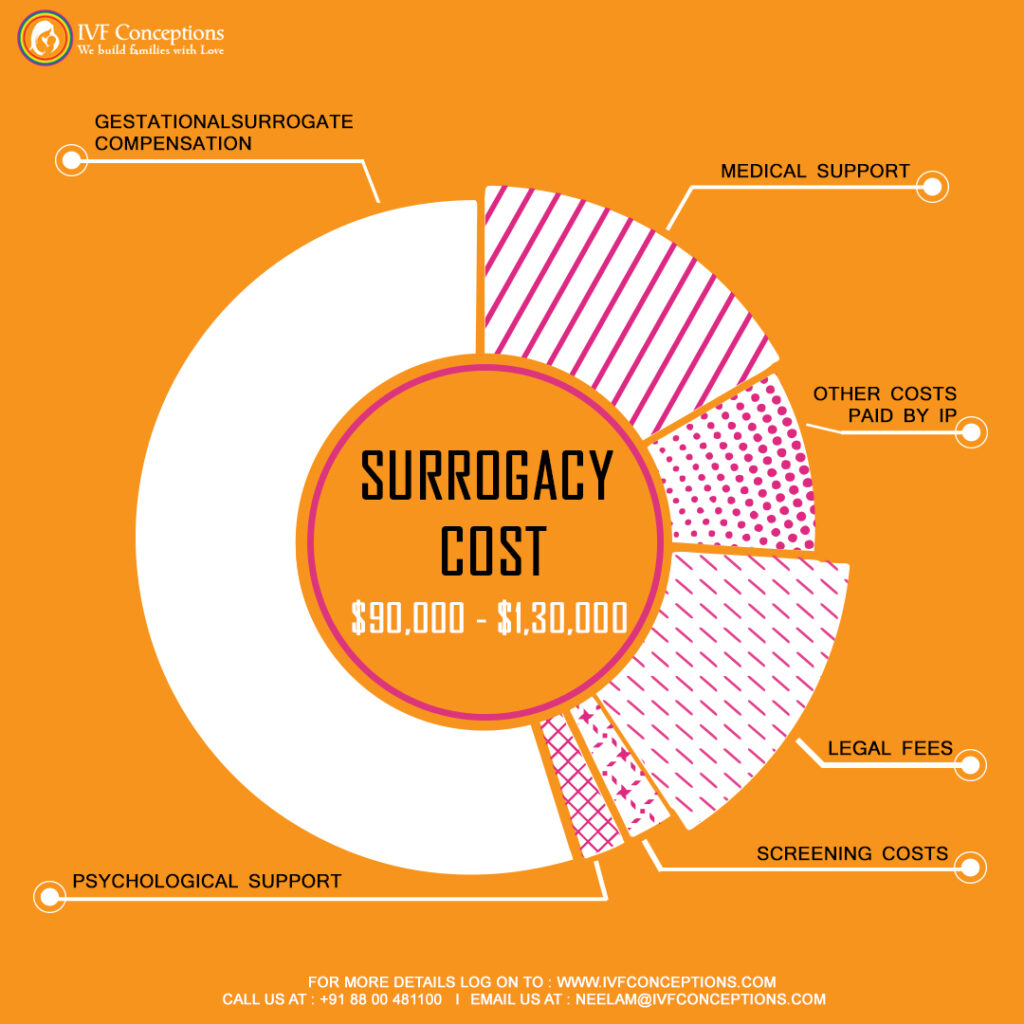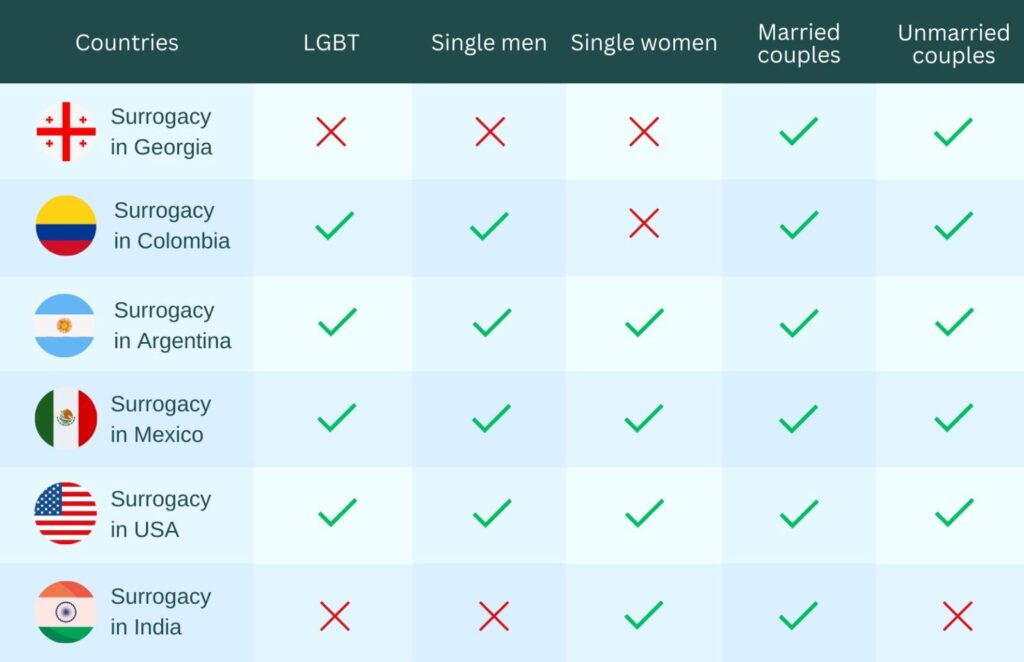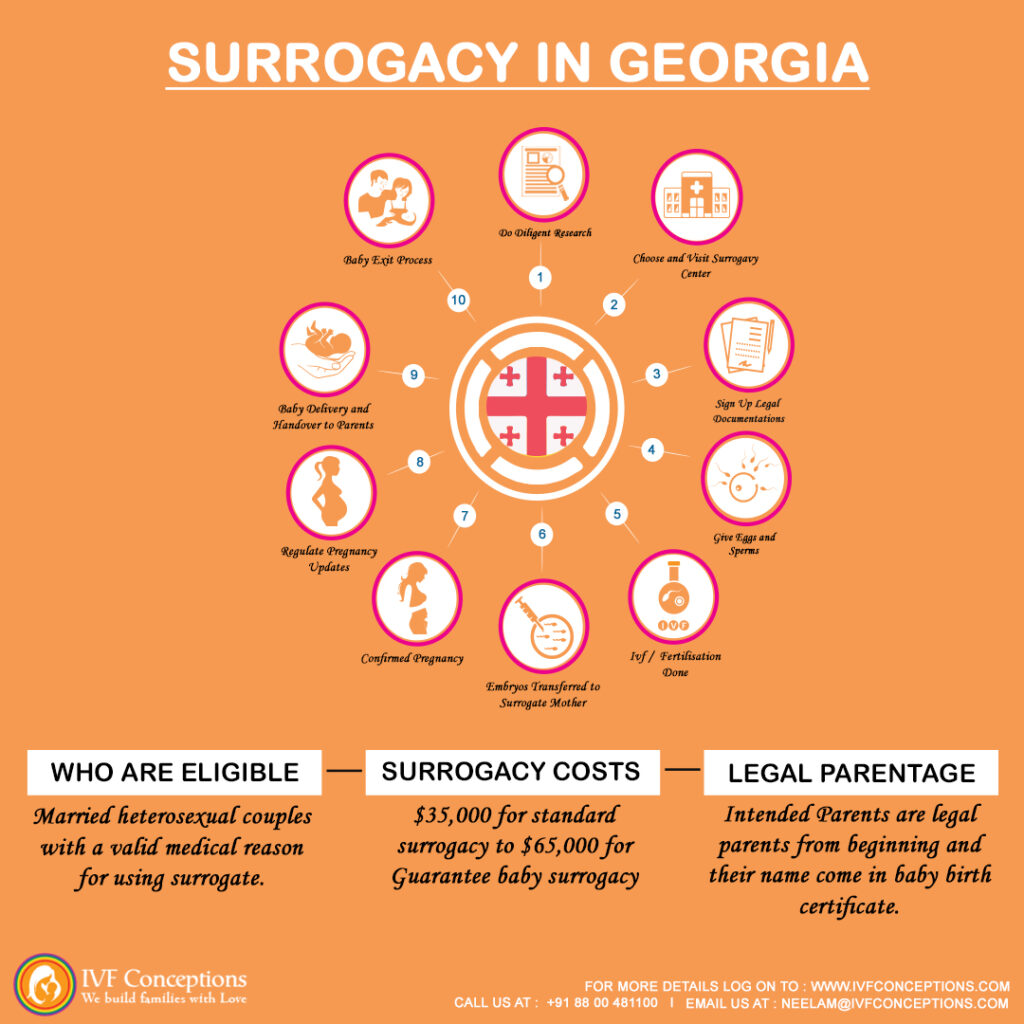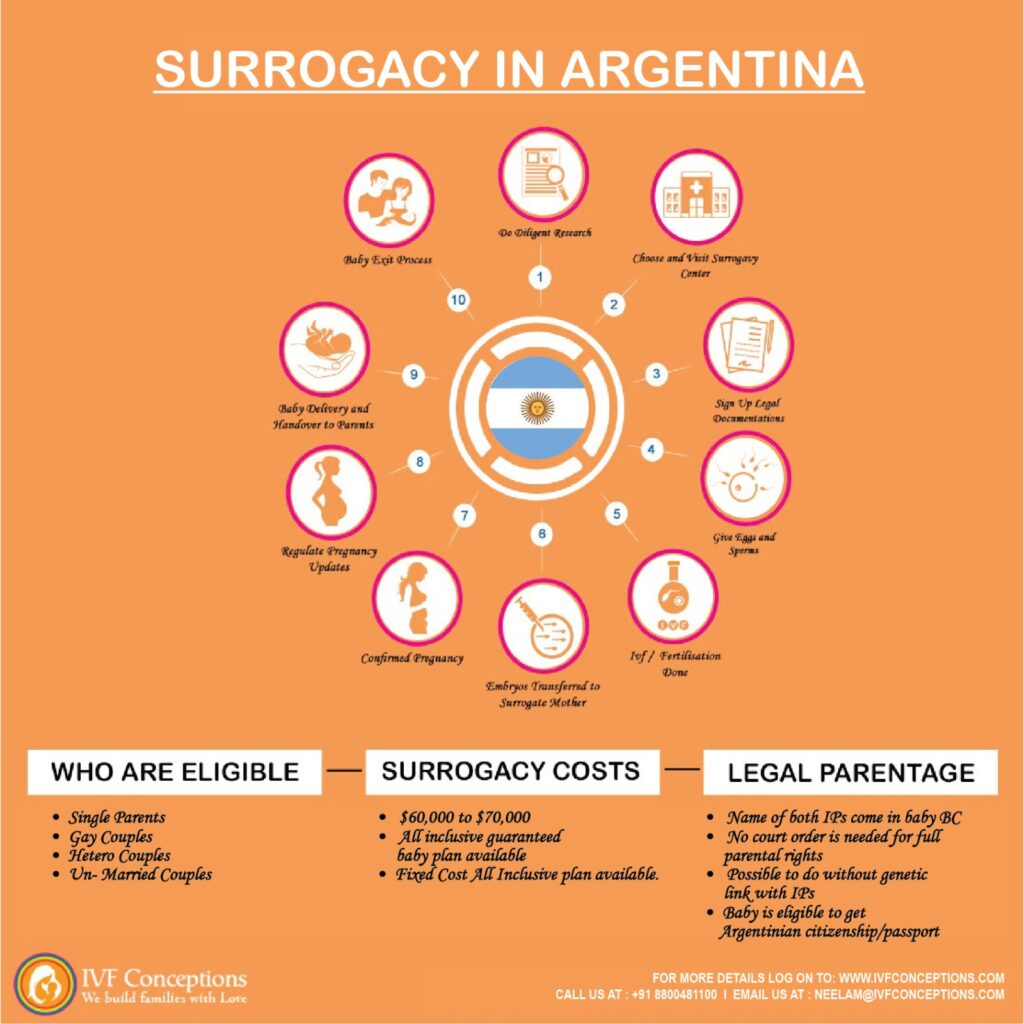Gestational Surrogacy In Pennsylvania: A Comprehensive Guide

Surrogacy in Pennsylvania is a straightforward, swift, and secure option for both intended parents and surrogates. The state is known for its “surrogacy-friendly” stance. The Pennsylvania Superior Court has overturned lower court rulings that restricted intended parents’ rights and surrogacy contracts. This, is despite the lack of explicit legislation or case law. However, the availability of parental orders still varies across the state.
There are no laws or public case rulings in Pennsylvania that explicitly allow or forbid surrogacy. Yet, two unpublished rulings, J.F. v. D.B., 897 A.2d 1261 (2006) and Whitewood v. Wolf, no. 1:13-cv-1861 (2014), support the practice. This decision made surrogacy legal in Pennsylvania, where it has remained a common family expansion method.
Get in touch for a Free Surrogacy Consultancy:
📲 +91-8800481100 ( WhatsApp, Line, Viber)
Surrogacy is permitted in Pennsylvania across various family contexts. It serves as a viable option when pregnancy becomes challenging. In Pennsylvania, surrogacy offers a wonderful way to expand your family. IVF Conceptions strives to ensure a smooth process for all involved.
Additional guide for intended parents:
Pennsylvania stands out as one of the most welcoming states for surrogacy. It guarantees the rights of both intended parents and surrogates throughout the process. For those considering surrogacy, Pennsylvania offers numerous benefits. Its surrogacy-friendly status, world-class healthcare, supportive community, ideal location, and commitment to diversity make it an ideal choice.
An Overview Of Surrogacy In Pennsylvania

In Pennsylvania, there are currently no laws governing the surrogacy industry. A 2006 case set a precedent for surrogacy in the state, despite a higher court’s reversal of a lower court’s ruling. Both surrogates and intended parents must understand the legal status of surrogacy in any jurisdiction.
This decision made surrogacy law in Pennsylvania, where it has remained a common method of expanding families ever since. In Pennsylvania, surrogates can be compensated for their services. Traditional surrogacy is also allowed, as no state laws or published cases prohibit it.
However, under Pennsylvania law, a traditional surrogacy is considered an adoption. This means pre-birth orders cannot be issued, and a surrogate cannot be paid for her services. Surrogacy agreements are, however, upheld in Pennsylvania courts.
Whether intending parents can obtain parentage orders varies depending on the judge. Progressive judges increasingly grant paternity declarations before birth to married and unmarried couples, as well as individuals. However, some judges remain conservative and may not accept such declarations.
If a parentage order cannot be obtained, intending parents may need to adopt the child post-birth. This is permitted by Pennsylvania law for residents of the state. Unmarried couples can also pursue second-parent adoptions, while stepparent adoption allows married couples to expedite the process.
Why Choose Pennsylvania for Surrogacy?
- Favorable Legal Environment
Pennsylvania supports gestational surrogacy and ensures legal protection for intended parents. - Experienced Professionals
The state is home to leading surrogacy agencies, fertility clinics, and legal experts. - Transparent and Affordable Costs
The cost of surrogacy in Pennsylvania is competitive and more affordable than in many other states.
Legal Framework for Surrogacy in Pennsylvania
Pennsylvania is considered a surrogacy-friendly state due to its supportive legal environment. Here are the key points:
- Gestational Surrogacy
Gestational surrogacy agreements, where the surrogate has no genetic connection to the child, are legally supported. - Pre-Birth Orders
Pennsylvania allows intended parents to obtain pre-birth orders, ensuring their names appear on the baby’s birth certificate at birth. - Surrogacy Agreements
Legal contracts must be carefully drafted to protect the rights and responsibilities of all parties involved.
Surrogacy Laws In Pennsylvania
Pennsylvania does not have specific laws allowing or prohibiting surrogacy. This absence of legislation does not imply that surrogacy is illegal or impossible. In fact, the state has seen numerous successful surrogacy journeys.
The most common type of surrogacy in Pennsylvania is gestational. In this type, the intended parents’ or donor’s genetic material is used in IVF, with the surrogate carrying the child. The legal aspects of gestational surrogacy are simplified due to the lack of a genetic link between the surrogate and the child.
Surrogacy Contract
In Pennsylvania, surrogacy contracts are crucial for legal protection and clarity. These agreements detail the responsibilities and rights of all parties involved. They cover financial arrangements, prenatal care, and legal paternity establishment.

Such agreements are often upheld by Pennsylvania courts. This ensures the rights and intentions of both the intended parents and the surrogate are protected. It leads to a smoother and more secure surrogacy process for everyone.
Parentage Orders
In Pennsylvania, prospective parents can obtain pre-birth orders for legal parental rights before birth. This legal process streamlines the post-birth legal procedures, making the transition to parenting easier. Legal action is necessary to formally recognize intended parents as the child’s legal parents in surrogacy situations. A pre-birth order of parentage is commonly used for this purpose.
Obtaining a pre-birth order is beneficial for several reasons:
● It allows the intended parents’ names to appear on the child’s original birth certificate.
● It ensures the infant can be released to the intended parents at the hospital.
● It grants the intended parents the authority to make crucial medical decisions for the newborn at delivery.
● It might assist in resolving insurance coverage issues
● Plus more
In Pennsylvania, anonymous donors do not have parental rights that need to be legally terminated. Many intended parents require the services of an egg or sperm donor during the surrogacy process. It is important to handle the rights of these donors legally.
How Much Does Surrogacy Cost In Pennsylvania?
Pennsylvania is a sought-after destination for surrogacy due to its established surrogacy laws, experienced professionals, and comparatively affordable costs.
The surrogacy cost in Pennsylvania generally ranges from $90,000 to $150,000, depending on various factors such as agency fees, surrogate compensation, medical treatments, and legal processes.

Breakdown of Surrogacy Costs in Pennsylvania
Below is a detailed overview of the major components contributing to the surrogate price in Pennsylvania:
- Agency Fees
Surrogacy agencies coordinate the entire process, including matching, screening, and support. These services typically cost between $15,000 and $30,000. - Surrogate Compensation
Surrogate mothers in Pennsylvania receive a base compensation of $40,000 to $60,000, along with additional payments for allowances and contingencies. - Medical Costs
Medical expenses, including IVF treatments, embryo transfers, and prenatal care, range from $30,000 to $50,000. - Legal Fees
Drafting surrogacy agreements, securing pre-birth orders, and other legal work usually cost $8,000 to $15,000. - Insurance and Miscellaneous Expenses
This includes health insurance for the surrogate (if necessary), travel expenses, and other incidentals, costing $10,000 to $20,000.
Average Cost of Surrogacy
| Expense Category | Estimated Cost Range (USD) |
| Agency Fees | $15,000 – $30,000 |
| Surrogate Compensation | $40,000 – $60,000 |
| Medical Costs | $30,000 – $50,000 |
| Legal Fees | $8,000 – $15,000 |
| Insurance & Miscellaneous | $10,000 – $20,000 |
| Total Estimated Cost | $90,000 – $150,000 |
Factors Affecting Surrogacy Costs in Pennsylvania
The cost of surrogacy in Pennsylvania can vary based on several factors:
- Surrogate’s Experience
Experienced surrogates may require higher compensation compared to first-time surrogates. - Medical Needs
If multiple IVF cycles or advanced genetic testing are required, medical costs may increase. - Legal Requirements
Complex legal situations, such as international intended parents, can raise legal expenses. - Insurance Coverage
Additional health insurance may be needed if the surrogate’s existing policy excludes surrogacy-related procedures.
Cost-Saving Tips for Surrogacy in Pennsylvania
Here are some ways to reduce the surrogate Rate in Pennsylvania:
- Consider a Known Surrogate
A family member or close friend as a surrogate can save on agency fees and compensation. - Work with Local Clinics
Using fertility clinics within Pennsylvania minimizes travel and accommodation expenses. - Opt for Comprehensive Packages
Some agencies and clinics offer bundled services, which can be more cost-effective than paying for services individually. - Explore Financing Options
Many surrogacy agencies and fertility clinics provide payment plans or financing to help manage costs.
Cost-Saving Strategies Table
| Strategy | Potential Savings (USD) |
| Work with a known surrogate | $10,000 – $30,000 |
| Use local fertility clinics | $5,000 – $10,000 |
| Bundle services | $5,000 – $15,000 |
| Use financing or payment plans | Flexible monthly payments |
The surrogacy price in Pennsylvania typically ranges from $90,000 to $150,000, depending on various factors like medical needs, legal expenses, and agency fees. By working with experienced professionals and exploring cost-saving strategies, intended parents can embark on their surrogacy journey with confidence and financial clarity.
For expert guidance on navigating the surrogacy process in Pennsylvania, consult with trusted surrogacy agencies and legal advisors to ensure a smooth and successful journey.
Gestational Surrogacy Process in Pennsylvania for Intended Parents
Surrogacy is permitted in Pennsylvania for various family structures. It offers a way for people facing pregnancy challenges to expand their families. Surrogacy allows the surrogate mother to help a family receive a wonderful gift. In Pennsylvania, it is a great option for family expansion.
You may consider surrogacy if:
● Getting pregnant is difficult for you or your partner.
● You and your partner are a same-sex couple seeking a genetic connection for your offspring.
● Being pregnant is not a possibility for you because you are single.
● A pregnancy that you started could not be carried to term.

Surrogacy Process In Pennsylvania
In Pennsylvania, there are no specific surrogacy regulations. However, it is important to stay informed about how living in Pennsylvania can affect your surrogacy process. This does not mean you cannot explore surrogacy as a family-building option in Pennsylvania.
The surrogacy process takes 18 months to 24 months depending upon the individual circumstances.
Outlines the surrogacy process timeline for intended parents:
| Stage | Description of Stage | Duration |
| Research Phase | Explore family building options and decide on surrogacy. | Personal timeframe |
| Consultation and Application | Choose a surrogacy agency, sign agreement, and start embryo creation (if needed). | 1-3 Months |
| Matching | Agency finds and presents potential gestational carriers. Meet and decide on a match. | 3-6 Months |
| Medical Screening and Contracts | Carrier undergoes medical and psychological screening. Sign surrogacy contract. | 1-2 Months |
| Embryo Transfer | Prepare for embryo transfer. Success may take multiple attempts. | 1-1.5 Months |
| Pregnancy | Gestational carrier’s pregnancy, approximately 40 weeks. | 9-10 Months |
| Birth and Postpartum | Baby’s birth, establish parental rights, and postpartum period. | 1.5-3 Months |
Please keep in mind that the durations mentioned in the table are approximate and can vary depending on individual circumstances and other factors. Always consult with a reputable surrogacy agency or professional to get personalized guidance throughout the surrogacy journey.
Each surrogacy journey is unique, depending on your specific situation.
Generally, the six processes involved in surrogacy in Pennsylvania are:
1. The first step in the intended parent and surrogate matching process is finding the perfect match between intended parents and surrogates.
2. Legal agreements are then made to protect everyone’s rights. Both parties must undergo medical assessments as part of this process.
3. Next, embryos are created through in vitro fertilization (IVF) using donated gametes or the genetic material of the intended parents.
4. A pregnancy test is conducted to check the viability of the chosen embryo before its implantation in the surrogate’s uterus.
5. Throughout her pregnancy, the surrogate receives top-notch care. Meanwhile, the intended parents eagerly await the arrival of their child.
6. After the baby is born, the legal process concludes, making the intended parents the child’s legal parents.
Find Surrogate Mother In Pennsylvania
Choosing the right surrogate mother is crucial for a successful and fulfilling surrogacy journey. Pennsylvania offers various avenues for intending parents to find a surrogate who can help them achieve their parental dreams. This is due to its diverse population and progressive laws.
Surrogacy Agencies: Agencies act as matchmakers, connecting intended parents with suitable surrogate mothers. They provide counseling, medical checks, and legal support. Agencies ensure the interests of both parties are protected throughout the process.
Online Surrogacy Platforms: Websites and forums dedicated to surrogacy are available. Intended parents can create profiles and connect with potential surrogate mothers on platforms like Surrogate.com and SurrogateFinder.com. These platforms offer a safe space for initial conversations and meetings.
Fertility Clinics: Surrogate mothers often work with fertility clinics. These clinics assist in matching and ensure the surrogate meets all medical standards. Working with a fertility clinic provides access to expert medical professionals who guide through the surrogacy journey.
Social media and support groups: There are surrogacy-specific groups on social media platforms like Facebook and Instagram. Intended parents can directly connect with surrogate mothers through these groups. Local support groups also host gatherings where potential parents can meet surrogates in person.
Surrogacy Conventions and Events: Attending surrogacy conventions and events is a great way to network with industry experts and potential surrogate mothers. These events give intending parents the chance to meet various surrogates, enabling them to make an informed choice.
Top Affordable Surrogacy Destinations- Cheapest Countries for Surrogacy

Below is a look at some of the most cost-effective international surrogacy destinations, including their processes, costs, legal frameworks, and eligibility criteria.
1. Surrogacy in Mexico
- Surrogacy Process: Surrogacy in Mexico is mostly unregulated, except in specific states like Tabasco, where arrangements are managed through private agreements with clinics.
- Cost Range: The typical cost of surrogacy in Mexico ranges from $60,000 to $80,000.
- Legal Framework: Surrogacy is limited to heterosexual married couples or single parents, depending on the state.
- Eligibility Criteria: Legal contracts are mandatory, and intended parents should collaborate with experienced lawyers to ensure enforceability.
2. Surrogacy in Colombia
- Surrogacy Process: Altruistic surrogacy is permitted in Colombia, supported by legally binding contracts and access to affordable IVF treatments.
- Cost Range: The cost of surrogacy in Colombia generally ranges between $60,000 and $70,000.
- Legal Framework: Surrogacy is available to heterosexual couples and single parents.
- Eligibility Criteria: There are no citizenship requirements, but contracts must adhere to Colombian legal standards.
3. Surrogacy in Georgia (country)
- Surrogacy Process: Georgia has clear and established surrogacy laws, ensuring that agreements are legally binding.
- Cost Range: The total cost of surrogacy in Georgia typically falls between $50,000 and $70,000.
- Legal Framework: Surrogacy is restricted to heterosexual married couples, with parental rights granted solely to the intended parents.
- Eligibility Criteria: Couples must provide a marriage certificate proving at least one year of partnership.

4. Surrogacy in Ukraine
- Surrogacy Process: Previously a favored destination, Ukraine offered transparent procedures and robust legal protections before the geopolitical crisis.
- Cost Range: Surrogacy costs in Ukraine typically range from $50,000 to $70,000.
- Legal Framework: Surrogacy is restricted to heterosexual married couples, with surrogates having no parental rights.
- Eligibility Criteria: Intended parents must be married heterosexual couples and provide proof of medical necessity for surrogacy.
5. Surrogacy in Armenia
- Surrogacy Process: Armenia offers legal certainty through its surrogacy laws, making it an increasingly popular choice for intended parents.
- Cost Range: Surrogacy in Armenia typically costs between $50,000 and $70,000.
- Legal Framework: Surrogacy is available exclusively to heterosexual married couples.
- Eligibility Criteria: Couples must be married, and the female partner must be under the age of 53.
6. Surrogacy in Argentina
- Surrogacy Process: Altruistic surrogacy is common, though contracts are not legally enforceable. Intended families collaborate closely with surrogates and clinics.
- Cost Range: The typical cost of surrogacy ranges from $50,000 to $70,000.
- Legal Framework: While there are no explicit surrogacy laws, it is recognized under family law and open to all family types, including LGBTQ+ couples.
- Eligibility Criteria: Working with legal experts is essential to navigate the informal surrogacy framework effectively.

7. Surrogacy in India
- Surrogacy Process: India has reopened surrogacy exclusively for Indian citizens, focusing solely on altruistic arrangements.
- Cost Range: The cost of surrogacy in India typically ranges from $25,000 to $40,000.
- Legal Framework: Surrogacy is limited to heterosexual married Indian couples, NRI, or OCI cardholders who meet specific conditions. Commercial surrogacy is strictly prohibited.
- Eligibility Criteria: Intended parents must hold Indian citizenship, NRI, or OCI status and provide medical documentation demonstrating the need for surrogacy.
Comparative Table: Surrogacy Costs in the USA and Surrogacy Abroad Countries
| Country | Cost Range | Legal Framework | Eligibility Criteria | Key Feature |
| USA | $120,000–$200,000 | Fully regulated, binding | Open to all family types | High-quality medical and legal services |
| Mexico | $60,000–$80,000 | Semi-regulated, binding in parts | Heterosexual married couples, singles | Lower costs and proximity for Americans |
| Colombia | $50,000–$70,000 | Binding legal contracts | Open to heterosexual couples, singles | Affordable and accessible IVF treatments |
| Georgia | $40,000–$60,000 | Strict legal framework | Heterosexual married couples | Strong legal protection |
| Ukraine | $40,000–$70,000 | Strict legal framework | Heterosexual married couples | Transparent and reliable processes |
| Armenia | $50,000–$70,000 | Strong legal protections | Heterosexual married couples | Growing popularity with legal certainty |
| Argentina | $40,000–$60,000 | Informal, family law-based | Open to all family types | LGBTQ+ friendly with affordable options |
| India | $25,000–$40,000 | Strict, altruistic only | Indian citizens only | Most affordable option for eligible parents |
Looking for the best Surrogacy clinic / Surrogacy agency abroad?
We are here to help with more than 15 years of experience in offering safe, reliable and affordable surrogacy options globally.
We analyze your needs, budget planning, egg donor availability, destination preferences with legal framework and find top surrogacy country and agencies for you!
Our consulting services are free of cost and do not affect your costing in any way but help you to save tons of research time and money.
Additional guide for intended parents:
Conclusions
Although Pennsylvania lacks a specific surrogacy statute, the practice is not prohibited outright. This creates a legal gray area that can pose challenges and uncertainties. Anyone considering surrogacy in Pennsylvania should consult with legal experts specializing in reproductive law.
This ensures a clear understanding of their rights, obligations, and the legal steps involved. Open communication and collaboration between intended parents, surrogates, and medical professionals are also vital for a successful surrogacy experience.
Our Complete Surrogacy Consulting Services /Case Management cover a wide range of services globally, including:
✓ Guide and Support to choose the secure and legal surrogacy program
✓ Surrogacy clinic and agency recommendations
✓ Legal support and referrals
✓ Logistic support/planning
✓ Surrogacy agency liaison
✓ Financial planning/financial aids
✓ Citizenship and passport assistance
✓ Case management
✓ Shipment assistance
✓ Collaborations with third-party support (if you have your own clinic/agency to make sure your program is done properly)
✓ Quick and transparent communication
At COMPLETE SURROGACY our goal is to ensure a affordable, reliable, smooth and supportive experience as you start this remarkable journey towards parenthood. If there are any specific questions, concerns, or details you’d like to discuss, please don’t hesitate to let me know.
We are happy to assist you with one of our global surrogacy programs best suited you your personal and legal needs. I am here to assist you every step of the way
Get in touch for a Free Surrogacy Consultancy:
📲 +91-8800481100 ( WhatsApp, Line, Viber)

Frequently Asked Questions About Surrogacy In Pennsylvania
1. What is surrogacy?
Surrogacy is a legal arrangement where a woman (the surrogate) carries and gives birth to a child for another person or couple (the intended parent). This child will have the intended parents as their legal parents.
2. What are the laws regarding surrogacy in Pennsylvania?
Surrogacy in Pennsylvania is governed by specific statutes and court decisions. It’s crucial to understand Pennsylvania surrogacy laws and work with experienced legal professionals to navigate the legal aspects of surrogacy in the state.
3. What is the surrogacy process in Pennsylvania?
The surrogacy process in Pennsylvania involves several steps. These include selecting a gestational surrogate, undergoing embryo transfer, and executing a surrogacy contract. This contract outlines the rights and responsibilities of all parties involved.
4. Can anyone become a surrogate in Pennsylvania?
To become a surrogate in Pennsylvania, one must fulfill specific criteria. This involves a detailed surrogacy evaluation conducted by a surrogacy agency or a Pennsylvania surrogacy attorney. This process is crucial for ensuring the surrogate’s readiness and suitability for the role.
5. Are pre-birth orders available for intended parents in Pennsylvania?
Indeed, Pennsylvania facilitates pre-birth orders. These orders are instrumental in securing the intended parents’ parental rights before the child’s birth. This is particularly significant in the context of surrogacy arrangements.
6. What are the costs associated with surrogacy in Pennsylvania?
The cost of surrogacy in Pennsylvania is quite variable. It encompasses several expenses. These include compensation for the surrogate, medical costs, legal fees, and other ancillary costs. Understanding these financial aspects is essential for prospective surrogates and intended parents.
7. What are the different types of surrogacy recognized in Pennsylvania?
In Pennsylvania, there are two primary types of surrogacy. Gestational surrogacy is recognized, where the surrogate is not genetically linked to the child. This contrasts with traditional surrogacy, where the surrogate uses her own egg. Each type has its own legal and ethical considerations.
Disclaimer:
All legal information on this website is intended only as a guide and is not a replacement for the opinions of licensed legal professionals/Medical professionals. Some information may have changed since the time of publication. We advise you to consult a licensed attorney/Medical expert with authority in fertility/surrogacy processes.

Author Bio: Neelam Chhagani is an International Surrogacy Expert with 15 years of experience in the fertility and surrogacy domain. As the founder of IVF Conceptions and Complete Surrogacy, she has guided over 4,000 intended parents worldwide on their surrogacy journey to parenthood. Recognized as a trusted authority, she specializes in holistic infertility solutions and third-party reproduction consulting.
Holding an MA in Counselling Psychology and a PGD in Mental Health, Neelam is a proud member of the European Fertility Society (EFS) and the European Society of Human Reproduction and Embryology (ESHRE). She is also a leading surrogacy blogger, providing valuable insights into ethical and practical surrogacy solutions.
Since 2010, committed to supporting ALL family types, Neelam has been passionate about helping intended parents grow their families with compassion, integrity, and a focus on secure and affordable surrogacy options Globally.
Learn more about Neelam:
https://www.ivfconceptions.com/neelam-chhagani-surrogacy-consultant/
https://www.linkedin.com/in/neelam-chhagani-92892229/















I was introduced to Neelam by a friend who worked with Neelam for surrogacy. Neelam is absolutely wonderful. I am a single male and the journey to fatherhood is not that easy. Neelam connected me to a program ideal for my circumstances. She was with me throughout the pregnancy providing advice and guidance along the way. I am so grateful I found her and am thrilled today that I have a beautiful daughter. I highly recommend Neelam to anyone who is on a journey to become a parent. Having a child has changed my world for the better. I wish others success with their own journey and recommend you connect with Neelam to find a path that is best for you.
SA (USA)